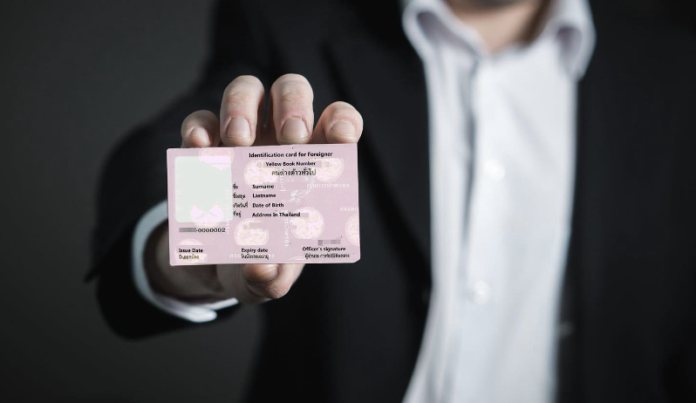An interview with U Aung Kyaw, Spokesperson for the Labor Rights Foundation (LRF), regarding the situation of migrant workers in Thailand and important information about the upcoming Pink ID Card program.
In the coming days, Thailand will initiate processes to extend work permits and issue a Pink ID Card for Myanmar migrant workers who have arrived through both legal and illegal channels.
These government arrangements are being viewed as creating an opportunity for undocumented Myanmar nationals.
Than Lwin Times interviewed U Aung Kyaw, spokesperson for Thailand-based Labor Rights Foundation (LRF), about the current situation of Myanmar migrant workers in Thailand, things to know about the pink card process that many Myanmar migrants in Thailand are eagerly awaiting, and the challenges the MoU workers are facing.
Q: What is the current situation of Myanmar migrant workers in Thailand? What challenges are they facing?
A: Many Myanmar migrant workers are facing difficulties with living and working because they don’t have official documents and can’t find jobs in Thailand. Now that the Thai government is planning to issue official documents, there’s hope for the undocumented. The Thai Prime Minister herself has approved provisions allowing migrant workers to move freely and reside in the country until the end of December.
Q: What further details can you share about the pink card for undocumented migrant workers, including Myanmar workers? What stage is this process currently at?
A: The Thai government has announced that they will allow official applications. We’re just waiting for the implementation date. It will be an electronic system where applications can be submitted online. This means skilled employers can apply without having to go anywhere.
Q: What challenges are Myanmar migrant workers currently facing in the Pink ID Card process? What guidance would you like to provide to workers about dos and don’ts?
A: The main challenge is that workers are paying significantly more than the official government-set rates – this is the biggest challenge. The underlying reason is that workers don’t have their own employers, and Thai law requires a Thai employer. When they obtain a nominal employer and pay the associated fees, workers are being charged exorbitant amounts. Using a nominee employer increases potential costs.
Undocumented workers might find cost relief only by finding a new employer. When applying, I recommend carefully verifying the credibility of whoever is helping with the application. If the standard rate is around 8,000 baht, they’re being charged up to 15,000 baht – this is the biggest challenge for workers.
Q: We often hear labor rights violations for MoU Myanmar migrant workers. What would you like to say about the MoU situation?
A: This has been ongoing for a long time. Once you enter Thailand and get a job, they say you must pay them back. Many MoU workers are literally suffering in a sea of hardship
Q: The NUG’s Ministry of Labor has issued statements including requirements to share migrant workers’ personal information with the military council, and to provide income tax and documents related to money transfer to their families. What are your thoughts on these points?
A: From a legal perspective, sharing workers’ personal information is not appropriate. We have no problem providing personal information in the host country where we have been working for many years. But, from a legal standpoint, these transfer and sharing practices are considered inappropriate.
Q: There have been instances of the junta arresting and conscripting Myanmar migrant workers, especially those deported back to areas like Kawthoung after being detained in Thailand for various reasons. As a labor rights advocate, what would you like to advise?
A: I consider this inappropriate. After workers have already endured hardships working in a foreign country and are deported, it is not appropriate to then subject them to military conscription laws as they did in the past.
Q: What is the current situation regarding undocumented Myanmar migrant workers’ illegal border crossings?
Answer: At the moment, I would say the situation has somewhat eased.
Q: What else would you like to add?
A: Both long-term and new migrants in Thailand face significant challenges. Long-term workers are able to continue their jobs and move between workplaces, while new migrants, on the other hand, often wait months for proper documentation, which leads to accumulating debt and interest.
I advise them to connect with a reputable agency this time and to carefully obtain the necessary documents. If this process is not handled correctly, undocumented workers risk being checked and potentially detained in Thailand in the future. I strongly urge them to successfully complete the process this time.
Sent by Than Lwin Times.



